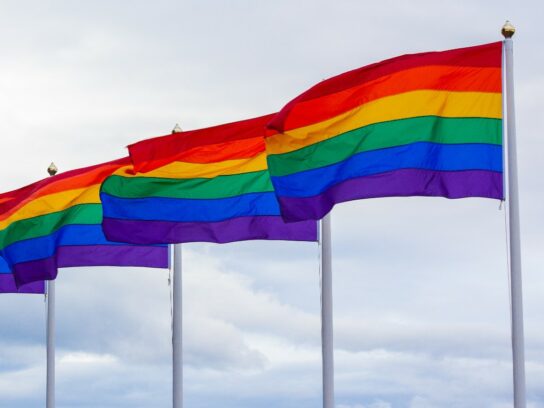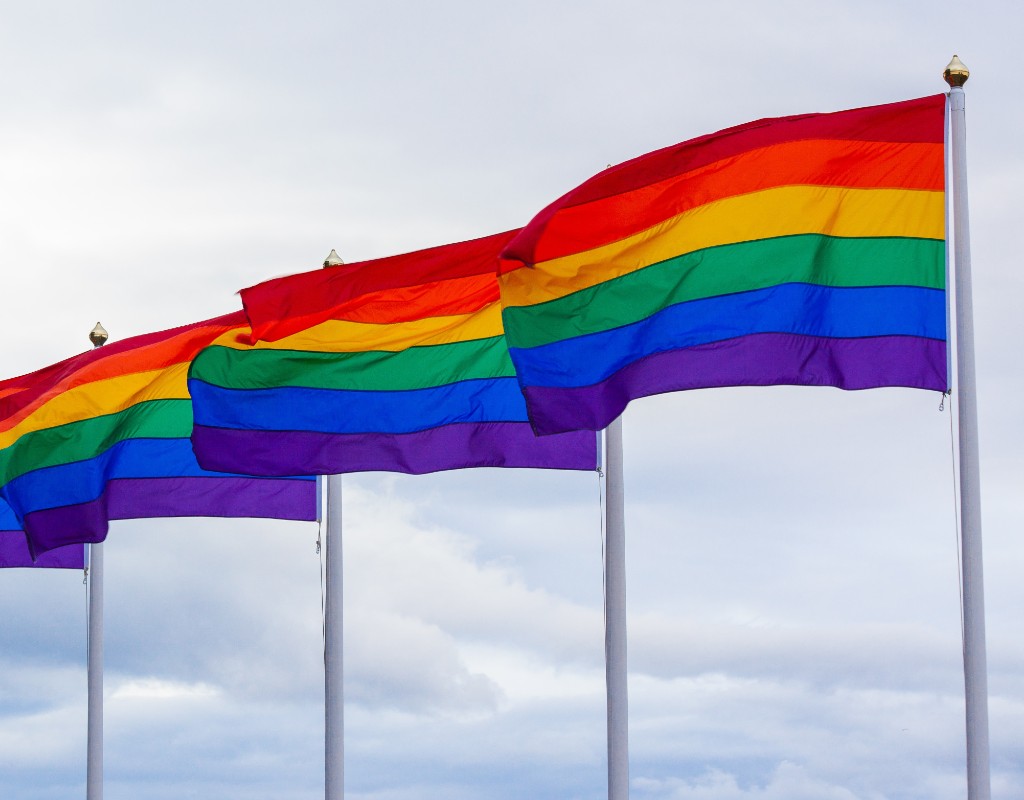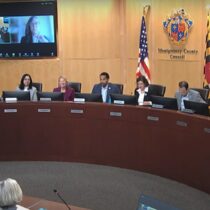
 At its Oct. 6 meeting, Montgomery County councilmembers unanimously enacted an LGBTQ Bill of Rights that strengthens the county’s protection of lesbian, gay, bisexual, transgender and queer residents. This bill of rights is the first such law in Maryland and the region, according to the council.
At its Oct. 6 meeting, Montgomery County councilmembers unanimously enacted an LGBTQ Bill of Rights that strengthens the county’s protection of lesbian, gay, bisexual, transgender and queer residents. This bill of rights is the first such law in Maryland and the region, according to the council.
The legislation adds gender expression and HIV status to the list of protected people.
A particular goal of the legislation is to make sure the senior LGBTQ community has the same rights as everyone when it pertains to visiting healthcare facilities, nursing homes and group homes. It also protects people from discrimination because of their choice of pronouns. The legislation declares it discriminatory to “willfully and repeatedly” use someone’s incorrect name or pronoun after being told repeatedly not to do so.
“We have to protect all of our residents,” said Councilman Evan Glass, the legislation’s lead sponsor. “Nobody should ever feel different or be made to feel different.”
Glass noted, “This legislation will ensure that LGBTQ+ seniors can receive the health and medical attention they need so they can age with dignity and respect.”
The Council unanimously enacted the LGBTQ Bill of Rights, led by @EvanMGlass, which will strengthen #MoCo’s legal protections for lesbian, gay, bisexual, transgender & queer residents by expanding the County’s anti-discrimination code to include gender expression & HIV status. pic.twitter.com/euLJmPJU92
— Montgomery Council (@MoCoCouncilMD) October 6, 2020
Montgomery County’s senior population is projected to constitute 21 percent of county residents by 2040. and with half of all people living with HIV being over the age of 50, the need for protecting access to healthcare is particularly acute for LGBTQ+ seniors, according to a news release from the county council.
Nancy Carr, associate state director for communications at AARP Maryland, praised the county’s LGBTQ Bill of Rights. “Access to safe long-term care is of dire concern for the LGBTQ community,” she wrote in a news release. A 2018 AARP study found that many LGBTQ seniors are vulnerable and isolated because they are less likely to have adult children to look out for them. They are also more likely to have lost a significant part of their social network during the HIV/AIDS epidemic. Discrimination at the hands of providers, threatens the very health, financial security, and personal fulfillment of too many 50-plus LGBTQ adults. We are glad to see Montgomery County take the lead on this issue and we hope it propels further action at the state level.”


Comments are closed.